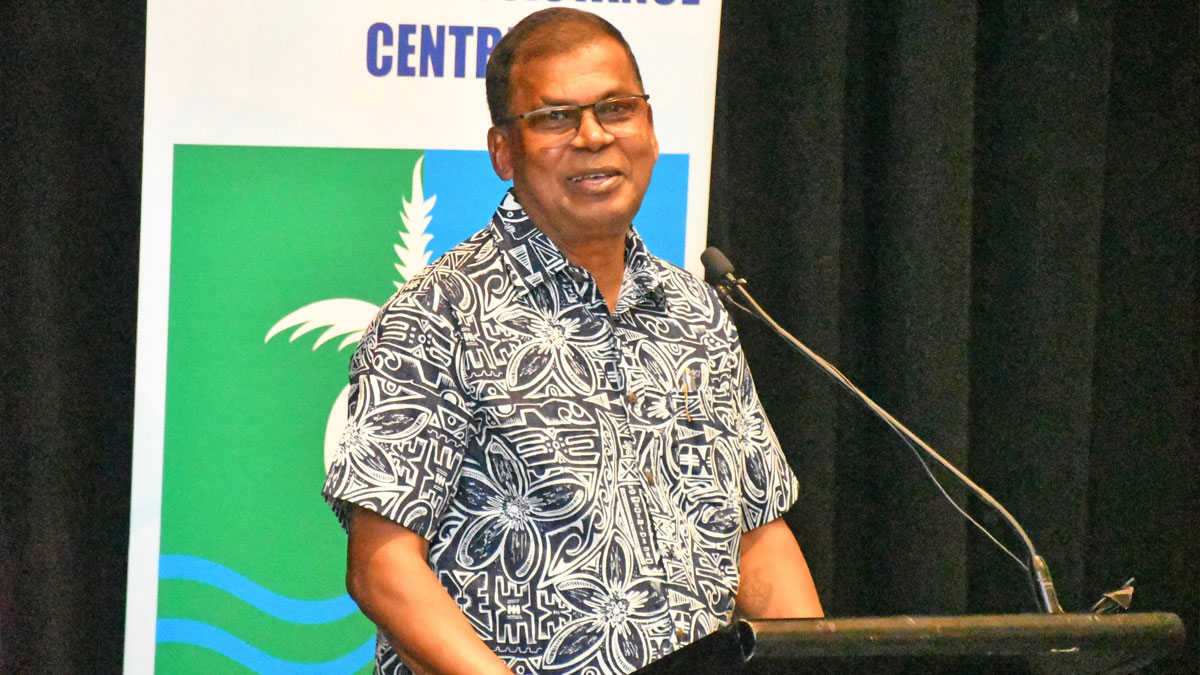
No country outside the Blue Pacific is considering the whole-scale migration of its people as a result of climate change and no country is exploring legal options to maintain state continuity to prepare for an eventuality when their lands are lost to sea level rise.
This was highlighted by the Deputy Prime Minister and Minister for Finance, Biman Prasad today during the Mobilising Climate Finance for Resilience and Growth in the Pacific Islands at the Sofitel Hotel in Nadi.
Prasad says the climate crisis is the gravest threat; the gravest challenge to the security; to the well-being and the stability of Pacific societies and economies. He acknowledged the International Monetary Fund Deputy Managing Director, Dr Bo Li as they need to take a leadership role in framing the global financial response to the climate crisis.
He says from 2003 to 2019, climate financing accessed by SIDS amounted to a meager $1.7 billion, all Pacific Pacific Island States have had negative experiences in accessing climate funds and development partners say this is because of capacity constraints.
Professor Prasad says they have told the partners that this is because of the rigorous and complex requirements they have constructed to access these funds while some even go further to say that the procedures are deliberately complicated to restrain small island states from accessing scarce climate funds.
DPM says they need to crush the time it takes for resources to become available to Pacific Governments. He says we live the climate crisis across the Pacific from the highlands of PNG to the flat lands of the Federated States of Micronesia as the climate change supercharged El Nino unfolds with ferocity unseen in decades. The Deputy Prime Minister says they feel the impacts of climate change on the rapidly deteriorating infrastructure such as the jetties, schools and roads. Professor Prasad says climate change increases the cost of food and other essential items that are driven by floods, droughts and grave uncertainty in weather patterns across the world that affect families.
He says the World Bank and Asian Development Bank have granted some access to concessional financing by taking into regard the unique vulnerabilities and this should be mainframed in making decisions about concessional and climate funds.
He says climate crisis must not be allowed to end up in climate colonialism as small states drown deeper into debts to recover from climate disasters.
Fiji adopted its first National Climate Finance Strategy last year, this gives us a blueprint for prioritising climate investments and seeking climate funds externally.
Prasad further says the threat arising from climate change conveys a combination of vulnerabilities that now threaten the existence and stability of our societies. The Deputy Prime Minister adds that globally, 1 in 10 climate disasters in small states involve the destruction of more than 30 percent of GDP and no Organisation for Economic Co-operation and Development country has faced such a scale of economic loss from a single climate event however Vanuatu has faced this twice within this decade.
He says this is why small island states make a special and unique case for climate and development financing.
Stay tuned for the latest news on our radio stations


